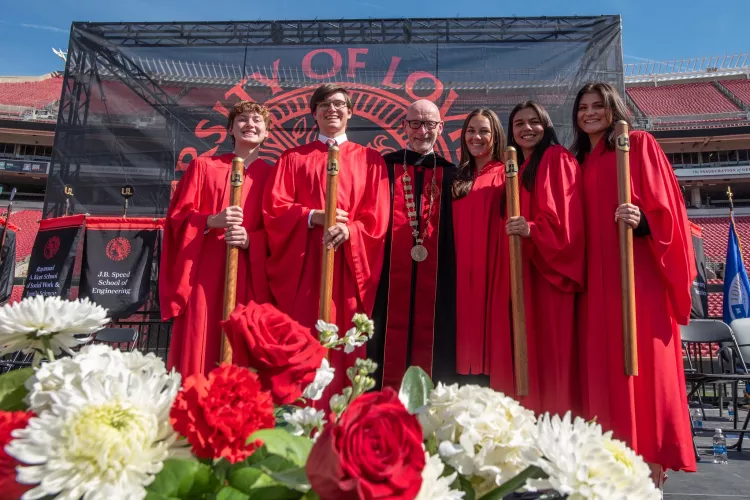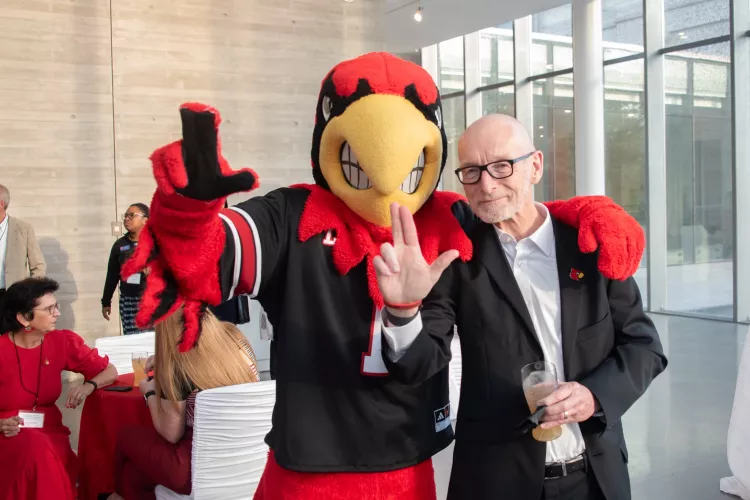New CEHD program aims to provide future soldiers with holistic education
July 15, 2016A new UofL program that revamps the way college-level instructors teach future soldiers is generating plenty of interest and has landed an $848,000 grant from the U.S. Department of Defense.
More than 400 educators — mostly military science instructors for ROTC programs — have completed or are currently enrolled in the College of Education and Human Development’s Cadre and Faculty Development Course. The Fort Knox-based program is attracting students from across the U.S.
UofL presented the Army with an innovative model of learning drawing on education sciences, higher education administration, and leadership theory and practice. CEHD professor and chair Dr. Jeffrey Sun, who is spearheading the Cadre and Faculty Development Course, said the grant is designated as a pilot project.
Sun said the idea behind the program is to help the Army revamp its ROTC program to provide tomorrow’s soldiers with a more holistic education.
“The future of war and battle is not just through physical fighting but through cognitive dominance,” Sun said. “Skills like creative solutions, problem solving and leadership are more important than ever.”
The CEHD kicked off a preliminary version of the course in 2015 through its Educational Leadership, Evaluation and Organizational Development Department. Administrators used feedback from those first participants to hone the curriculum. Sun said course content leans heavily toward team-based learning and use of technology instead of traditional lectures.
Capt. David Edwards, who teaches military science at University of Houston, took part in the CFDC this summer.
“I like learning about strategies so I can keep students engaged, Edwards said, during a June visit to the Belknap Campus.
Edwards, like many of the course participants, has decided to continue his UofL education by earning a master’s degree in organizational leadership and learning.
Participants in the program begin with an assessment of their skills in areas such as critical thinking, problem solving, writing, technology and more. The idea, said Sun, is to see improvement in all of those benchmarks.
There is also a heavy focus on pooling expertise and experience so the group can learn military best practices from each other. Sun said course content leans heavily toward team-based learning and use of technology instead of traditional lectures.
“For example, when we teach leadership, we tap into what they are already doing well and then we clarify and distill that information so it becomes tangible and teachable,” he said.
UofL will compete for another DOD grant in 2017 in hopes of continuing the program.



